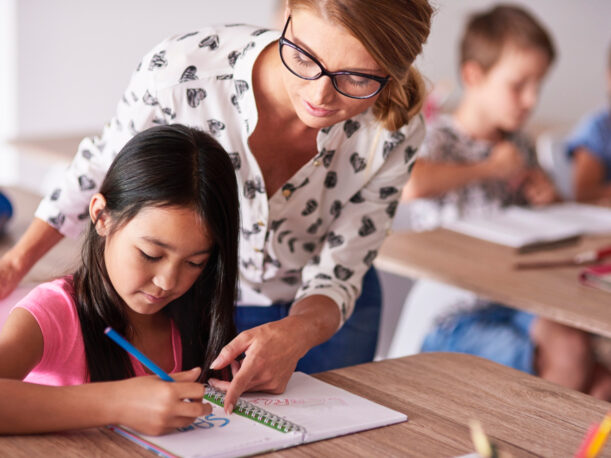As a teacher, I want all my students to enjoy reading and get along in school more easily because of that. And I want all my students to go home to a warm and loving family. That was one reason I wanted to foster—because then, that child in my room who did not have this, I could take home with me and give them love and opportunities.
I do not know the percentage of foster parents who are teachers, I could not find any studies on the internet. But I do not think it is very high. Personally I know of only one other teacher who fostered, and she did it in order to adopt. I do also personally know a deaf interpreter in the school system who fostered one of her deaf students. But surely society would benefit from more teachers being a foster parent.
I do understand how hard that would be. When I became a foster parent on top of being a teacher, I was so overwhelmed. I almost gave up—how could I do both? I eventually realized that it would be similar to being a teacher and a parent period--very difficult. In case that doesn’t make sense, let me be the one to point out that a teacher does not work just his/her contract hours. A teacher can actually spend just as many hours working outside of contract hours and still more is expected of him/her. (Drawing the line to balance work/home would be another blog post.)
I think one fantasy that a teacher dreams about is taking home that neglected, under-achieving child in our class. We could love on him and nurture him, feed him and tutor him. Then he would be a loved and academically-accomplished child.
Nikki Hertzler
But parenting a child from a background of trauma does add more work than just parenting your own child. For one thing, there are parent and sibling visits multiple times a week as well as therapy visits. Plus, the stereotype of a foster child is the stereotype for a reason. Most of them really do struggle in school.
One study found that "children placed in foster care scored 16 to 20 percent below non-foster children on state standardized tests."1 Some of that is because their families have been so transitory and schooling has been interrupted multiple times. Much of it is because experiencing trauma affects the brain.
Another study found that "as many as 30 to 40 percent of all children in foster care are also in special education, which exceeds the rate of the general population" (5%).2 Again, much of this could be changed by living in a loving, stable, nontraumatic household.
And, of course, something else that helps in a loving, stable, nontraumatic household is the literacy opportunities there. National data shows “the only behavior measure that correlates significantly with reading scores is the number of books in the home.” 3 The number of books in a middle-class home averages 13 per child. In a lower income home, the average is 1 book per 300 children. 3 Yes, you read that correctly.
Let’s continue looking at the difference between what would be a teacher’s home and a foster child’s original home. “The average child growing up in a middle-class family [such as a teacher's] has been exposed to 1,000 to 1,700 hours of one-on-one picture book reading. The average child growing up in a less economically stable family [which includes our foster children], in contrast, has only been exposed to 25 hours of one-on-one reading.”3
There is so much more research on the benefits on academic achievement that simply access to books in the home give, but I'll refer you to the references below.
Imagine the difference in a child's life being taken in to foster in the home of a teacher would make. Not only the difference in feeling loved and cared for, but also in the academic opportunities that student could be helped to excel in. Teachers, can we step into the foster parent role more? Live out that fantasy.
- 1 Claire van Wingerden, John Emerson, and Dennis Ichikawa. 2002. Improving Special Education for Children with Disabilities in Foster Care. Casey Family Programs Education Issue Brief.
- 2 Dan Lips. 2007. Foster Care Children Need Better Educational Opportunities. Backgrounder #2039 on Education. Heritage Foundation: Washington, DC. http://www.heritage.org/research/reports/2007/06/foster-care-childrenneed-better-educational-opportunities
- 3 http://teacher.scholastic.com/products/face/pdf/research-compendium/access-to-books.pdf

